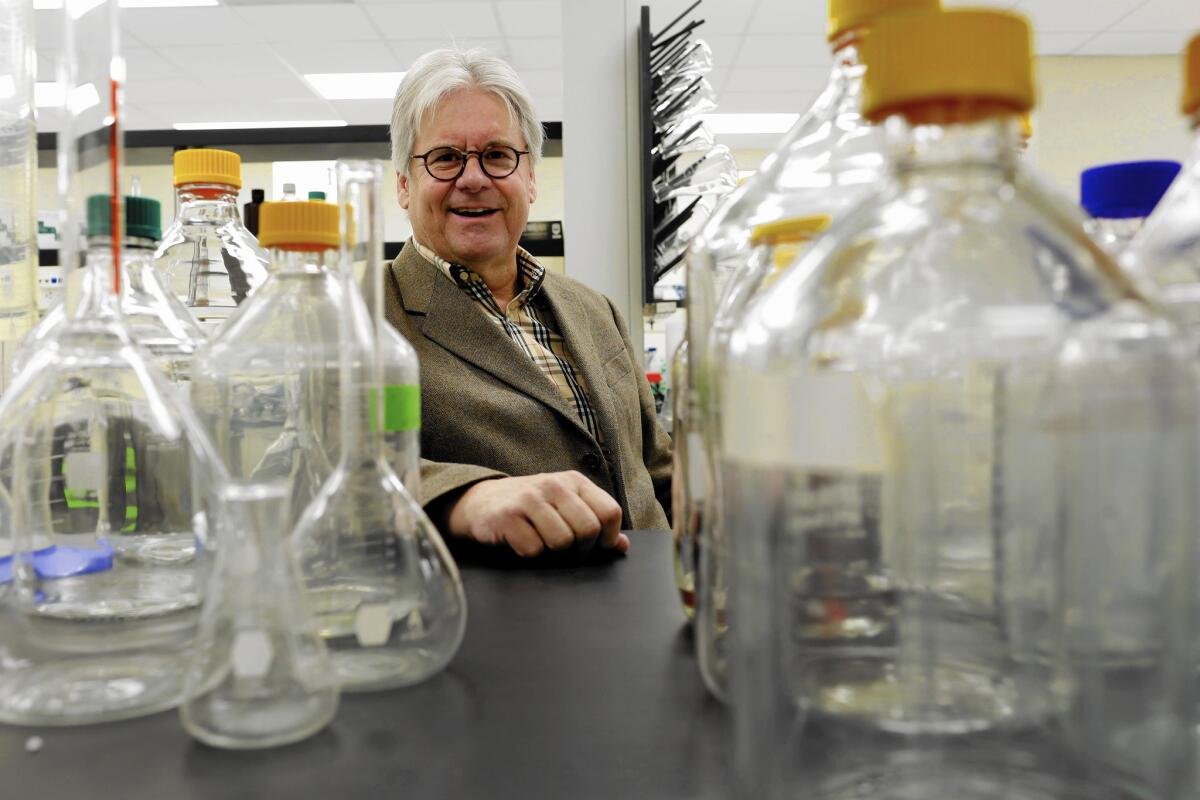How I Made It: MannKind’s man with a mission

The gig: Hakan Edstrom, 65, is chief executive of MannKind Corp., which developed an inhaled insulin drug that could replace injections for people with diabetes. The Valencia biotech company began selling the drug, Afrezza, in February under a partnership with French pharmaceutical company Sanofi. MannKind employs about 300 people.
Swedish roots: Edstrom was born in Sweden and graduated from the Stockholm School of Economics in 1973. He worked in marketing for General Foods, designing sales strategies for its Gevalia coffee brand in Scandinavia. “I actually liked it.... You had to be quick on your feet. You had to be sure you produced the right type of advertising and in-store promotions to make sure you retained your market leadership.” He later held executive positions for Pharmacia Corp. and Bausch & Lomb, where he ran the surgical equipment division.
Getting the call: In February 2001, Edstrom received a telephone call from Alfred Mann, the billionaire medical device entrepreneur and founder of MannKind. “I knew of Al, I did not know him,” Edstrom said. But it didn’t take long for Mann to woo him. Two months after that call, Edstrom agreed to become president of a company that was later named MannKind. He guided the company through the regulatory process that resulted in the June 2014 approval of Afrezza. He was named chief executive in January, after Mann stepped aside to serve as executive chairman.
A slow beginning: Afrezza sales have been far lower than analysts expected, in part because the Food and Drug Administration requires users to pass lung-function tests before they can be prescribed the drug. Also, insurers have required special authorization from doctors before they’ll cover the drug. In its first five months, Afrezza generated just $3.3 million in sales, a disappointing result considering some analysts expected it to eventually hit $1 billion a year. Edstrom has had to draw upon years of business leadership experience to keep employees motivated while struggling with financing and attacks from short sellers on Wall Street. MannKind’s stock, which closed Friday at $2.86, is down more than 45% so far this year. During the same period, the broad Nasdaq Biotechnology Index is up 9%.
Short-sellers frenzy: MannKind has faced intense pressure from short sellers, investors who are betting that the company’s stock will fall. “It certainly is very frustrating,” Edstrom said. “There’s so much being written on the message boards. It’s not reflecting the true situation, and you suspect it’s being written because it can benefit them. There’s not much we can do about that.... We are very much aware that you can have a conversation with the SEC and they can find a reason to look into it. I cannot talk about it because of confidentiality reasons.”
Will MannKind survive?: “Yes, it will. The basis for that is Afrezza is a unique product, and I absolutely believe we will see a significant uptick over time. I know from the feedback from patients, they absolutely love the product. The second reason is our [inhaler] is a very unique vehicle; it can deliver more than insulin through a pulmonary route. We have already started developing products that eventually will go into clinical testing.” One example could be pain medication, he said.
Motivating employees: “The word is communication. I think our employees know what to expect. Hopefully, we’ve communicated with them in a forthright and upfront manner, so they have an understanding of the product and an idea of what it will take [to succeed]. As a management team, we are transparent. I have very much an open-door policy so people can come up to me and ask questions. We try to get people together and tell them what’s happening so nothing will be a complete surprise.”
Managing in Europe versus U.S.: “In San Francisco and L.A., you have so many opportunities in terms of finding new jobs if you don’t like what you’re doing. In places like Sweden, when you’re employed with a company you tend to stay very loyal to the company, almost to a fault, because the options where you’re living may not be many. In the U.S., I have to inspire, build loyalty with my employees because they always have options here to go somewhere else. Here, I’m buying their time, I’m buying their loyalty. As long as what I’m offering is good, they’ll stay. If someone else comes along and offers something better, then I’m at a much bigger risk. It doesn’t mean U.S. employees are less loyal, it just means they have more opportunities.”
Leadership advice: “You can never be successful alone. A team can always beat you, no matter how smart you are. Choose your team with much care. Make sure you have a business culture, business philosophy and way of working that is a foundation for a strong team.... Together with your team, plan your business: What are the objectives, the strategies? You need to be a preacher and communicate with your staff; they need to understand what you’re trying to accomplish.”
Family man: Edstrom and his wife, Marie, have been married 40 years and have two adult sons and two grandchildren. They live in Santa Clarita.
Twitter: @spfeifer22
More to Read
Inside the business of entertainment
The Wide Shot brings you news, analysis and insights on everything from streaming wars to production — and what it all means for the future.
You may occasionally receive promotional content from the Los Angeles Times.










